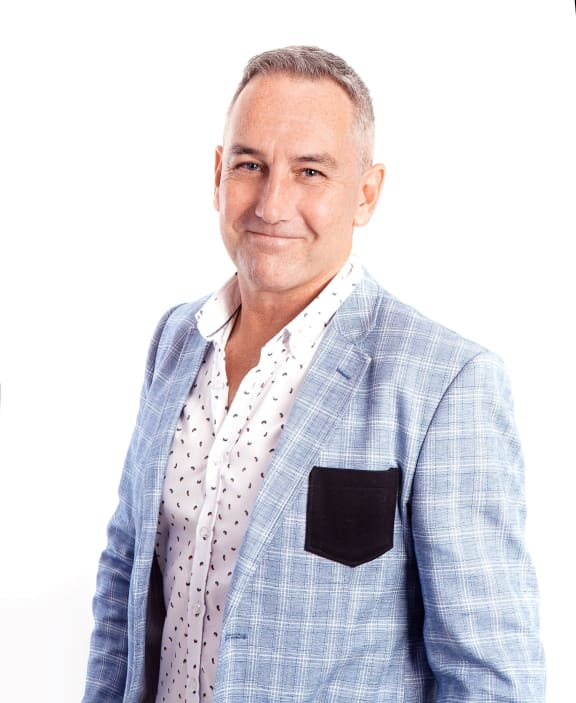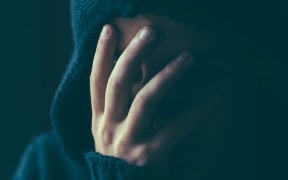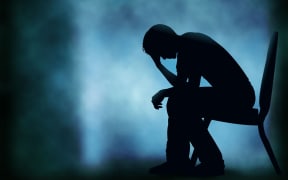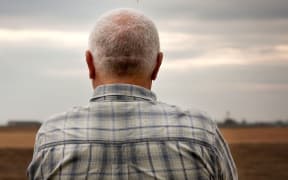The Mental Health Foundation is urging the police to improve training for communications staff who take calls from people threatening or attempting suicide.

Photo: RNZ / Rebekah Parsons-King
It said there is too much inconsistency in the response given to people ringing 111 in extreme distress.
An Official Information Act request has revealed call centre staff do only one day's training on how to deal with suicide calls as part of their six-week course.
It also showed no records were kept on the number of staff who have been on the phone with a caller when they committed suicide or how many have had counselling afterwards.

Mental Health Foundation chief executive Shaun Robinson. Photo: Supplied / Mental Health Foundation
Mental Health Foundation chief executive Shaun Robinson said he believed the police could improve their service by using expert training programmes such as Lifeline's 'Safetalk' and ideally there should be a national standard for everyone who receives them.
"It needs to be a mixture of very practical pragmatic training from experienced call centre crisis line operators as well as having some strong tools worked into that training that people can use.
"The indications are that while the police are making efforts in this direction it's not enough and it needs to be taken more seriously."
Figures obtained by RNZ's Insight programme showed a jump in calls about suicide from 11,148 in 2011 to 14,992 in 2015.
Mr Robinson said the problem was longstanding and police surveys showed for more than a decade staff did not think they were getting enough training.
The Mental Health Foundation had anecdotal reports of a mixed response from call centre staff and while some were excellent and went the extra mile, that was not always the case, he said.
"Equally we've encountered situations where people can be quite dismissive or unsympathetic towards being told of a person in extreme distress and it's really indicative of a situation that's not good enough.
"You shouldn't be relying on the luck of the draw as to whether you get a good response or a bad response in a situation where someone is considering taking their own life and that level of inconsistency is probably the strongest indicator that more training is needed."
The chief executive of Community Action on Suicide Prevention and Education Research (CASPER), Maria Bradshaw, agreed.
"I'm absolutely shocked that anybody would consider one day of training to be sufficient to deal with a life and death matter."
Ms Bradshaw said people had told her they refused to call the police when feeling suicidal because of their previous negative experience.
"They've been told, 'clearly you're mentally ill. Have you spoken to your doctor? You need to do something about your mental health' and there's a sense that the call staff don't understand a lot of what causes thoughts behind suicide attempts."
Ms Bradshaw was critical of police for not keeping records on the number of staff who had been on the phone when the caller committed suicide or on how many had counselling afterwards.
"That's not best practice and I'm concerned about the safety of the communicators (call staff).
"If the police is committed to improving its services and supporting their staff that data would be collected."
Mr Robinson agreed.
"Police should be working towards the highest standard service they can provide. A key way to do that is to collect information about those calls and their outcomes of those calls as a measure of how successful the police are in responding to them."
Ms Bradshaw said it was inappropriate for staff receiving suicide calls to have no debriefing after the shift if an event occurred, or to have to wait until the next shift for that to happen.
Student Job Search told RNZ that in 2015 it advertised five jobs for the police communications role at the request of agency Randstad which recruited on behalf of police.
Ms Bradshaw said she was appalled students could work part-time as police communicators.
"Young students do not have the life experience to do the role and students should not be put in the position of dealing with traumatic suicide calls.
"If the call ends badly and someone dies, it will stay with them forever."
Wellington Samaritans' operations committee chair Bernadine Reid also believed police should collect data on the number of staff who were on the phone when someone committed suicide.
"We have to know what we're dealing with. If the line is dealing with suicidal calls on a really regular basis that's important in terms of the support that's given to staff and also in terms of the policies for how you deal with those calls."
In a statement, the police said three additional e-learning modules for its 600 communication centre staff had been developed which covered recognising mental distress, engaging with and responding to people experiencing mental distress, and suicide awareness.
They said appropriate support was available to help staff deal with the range of challenging issues they may face.
Minister of Health Jonathan Coleman announced on Friday more support for mental health helplines including the 111 service.
Mr Coleman said the initiative would help strengthen the system for mental health response to people who reach out to helpline and police services at a time of mental health crisis and identify appropriate responses, referrals and support.
The initiatives will be phased in across all district health boards with the roll out expected to be completed by the end of 2017.
Where to get help:
Lifeline: 0800 543 354
Suicide Crisis Helpline: 0508 828 865 / 0508 TAUTOKO (24/7). This is a service for people who may be thinking about suicide, or those who are concerned about family or friends.
Depression Helpline: 0800 111 757 (24/7)
Samaritans: 0800 726 666 (24/7)
Youthline: 0800 376 633 (24/7) or free text 234 (8am-12am), or email talk@youthline.co.nz
What's Up: online chat (7pm-10pm) or 0800 WHATSUP / 0800 9428 787 children's helpline (1pm-10pm weekdays, 3pm-10pm weekends)
Kidsline (ages 5-18): 0800 543 754 (24/7)
Rural Support Trust Helpline: 0800 787 254
Healthline: 0800 611 116
If it is an emergency and you feel like you or someone else is at risk, call 111.







